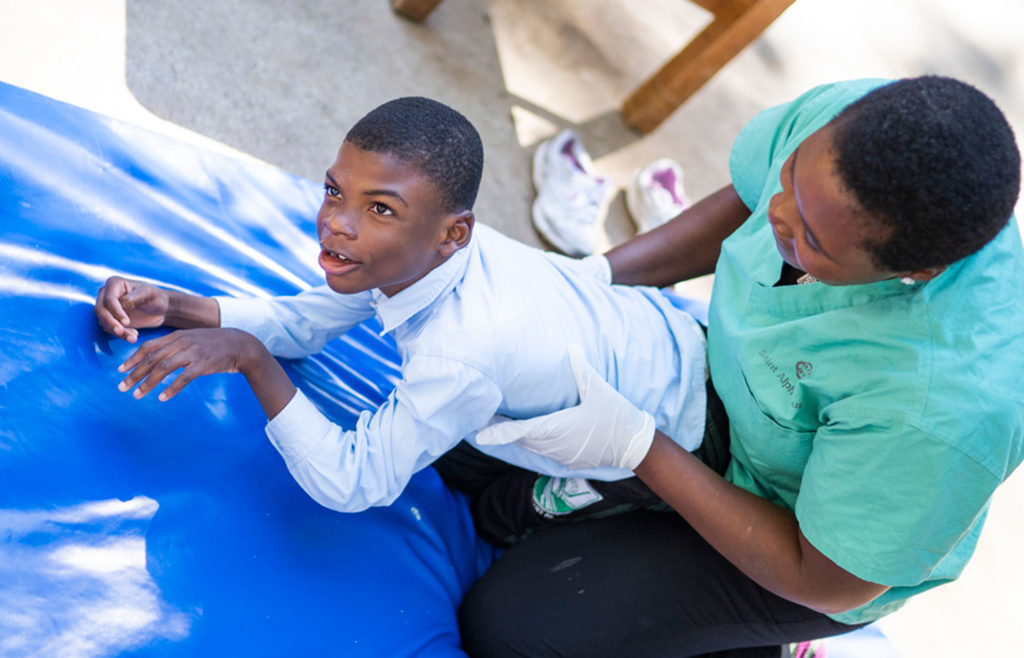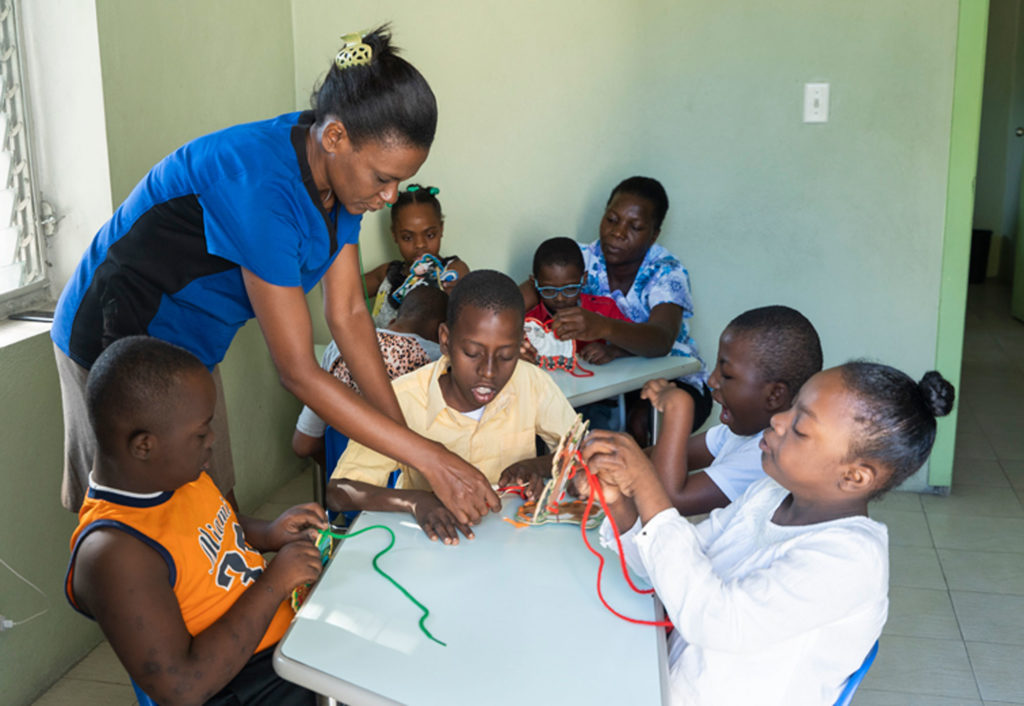Therapist training
One of the main problems in Haiti is the complete lack in availability of schools to educate and train physiotherapists. This has a huge impact on the services available to people with disabilities, as the professionals required to carry out the work are simply not available.

With this in mind we have developed a therapist training program to train our local therapists in the treatment of people with neurological disorders. Children and adults with neurological impairments require specific treatment, and our local staff receive training from expat physiotherapists with expertise in this area. This incorporates treatment of children and adults with cerebral palsy, Down syndrome, stroke and other neurological conditions.
Our training programme has been developed over a number of years and staff are now trained in both the theory and practice of treatment for people with neurological conditions. Monthly 2-day formations are structured to upskill and train staff. These are run by expat physiotherapists, who then continue to work side by side with local staff, providing constant on the job practical training. This transfer of skills has been crucial to the success of our programme and will provide sustainably for the programme into the future.
Teacher training
Many teachers in Haiti have no formal teacher training and there is no module in special education for those that have. When the school was originally established, we saw that our teachers were teaching as they would do in a regular classroom. This had no benefit to the children. Over the years special education volunteers and visiting experts have come to the school, training teachers in modern special education techniques. This is of course a continuous progression. The school still receives regular visits from visiting experts and our teachers receive regular upskilling and training at our monthly formations.

Outreach and expansion of training
At its inception, this training program was developed with sole aim of upskilling and training our own staff. However, this ability to sustainably develop the disabilities project, while providing a high level of professional practice and progressive delivery of services has seen our project become a model and resource for similar organisations in Haiti. With this in mind, our training program has most recently expanded to provide training and support to partner organisations in Haiti.
Here we have expanded our NPFS Professional Training Program by training community agents in different localities to give them the ability to provide therapeutic health care and education for children with special needs. The program has been developed and implemented with some success over the last year, during which period 5 rehabilitation staff and 2 education staff received professional training in Kay Germaine, Tabarre.
They now in turn provide services at small clinics throughout the diocese of Port de Paix and also provide training to 24 volunteers who work with geographically isolated families to provide a basic range of rehabilitative and educational services.
This initiative now serves an estimated 700 children with disabilities. As part of the programme we now travel once every 2 months to Mawouj to provide onsite training and to assist with the monitoring and evaluation of services. In doing so we are attempting to reverse the marginalization of this vulnerable population by providing quality therapeutic services and support to families. Through these efforts we believe that we will reduce the likelihood of abandonment and increase Haiti’s capacity to become more self-reliant in the provision of therapeutic health care to its citizens with disabilities.
You can help people to receive therapy
The Special Needs Programme makes an immense difference to people in Haiti with disabilities and does so on very limited funds.
A modest donation can make a big difference. We’re counting on you.
